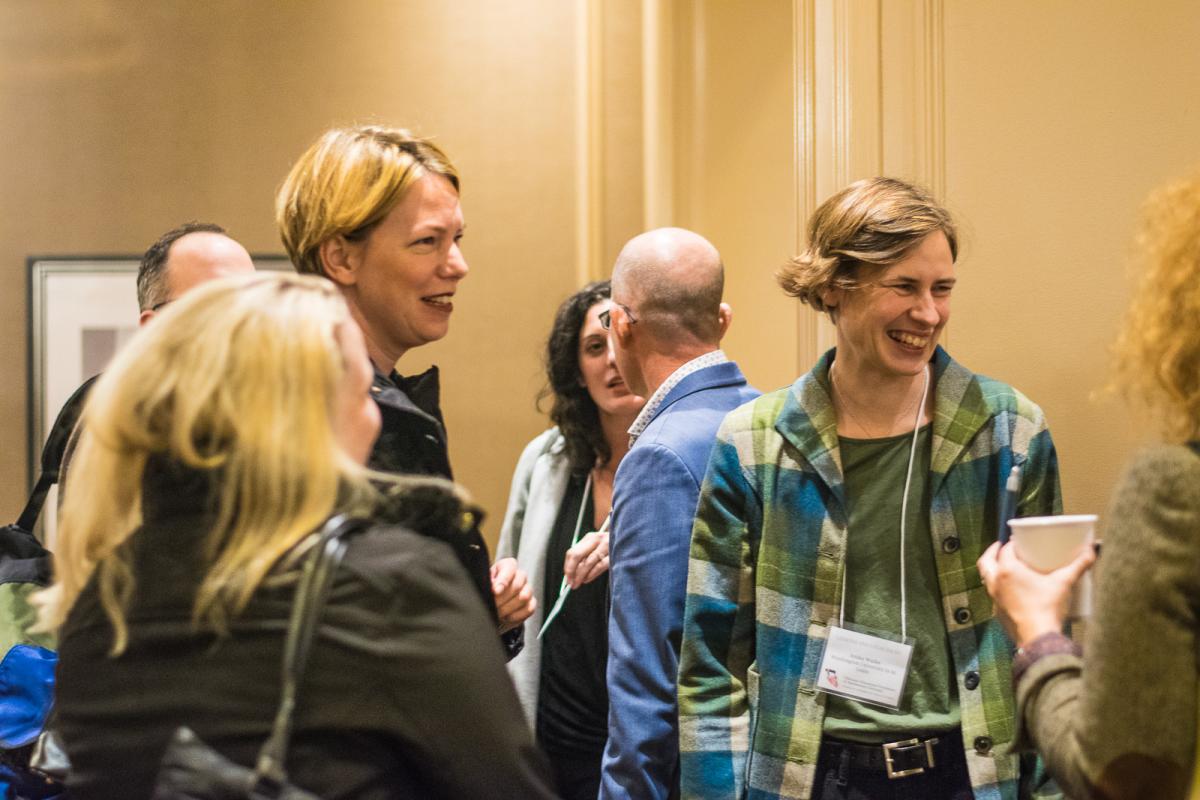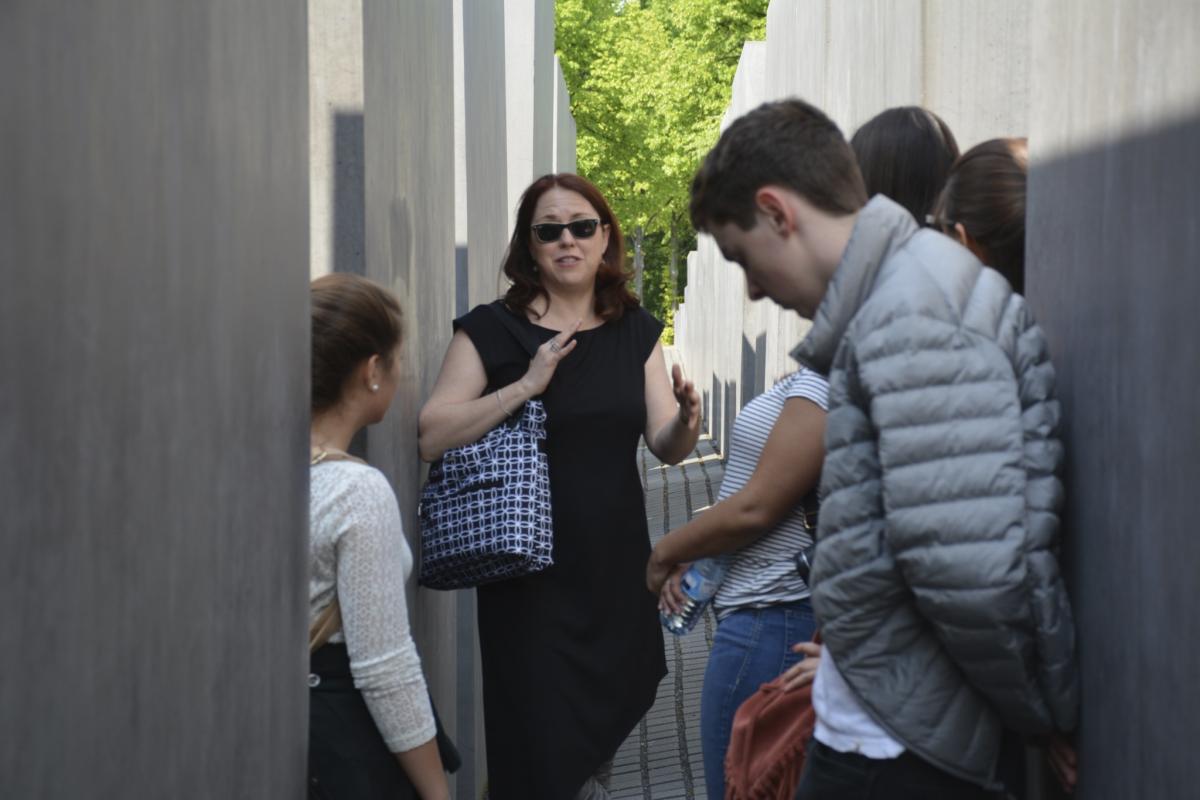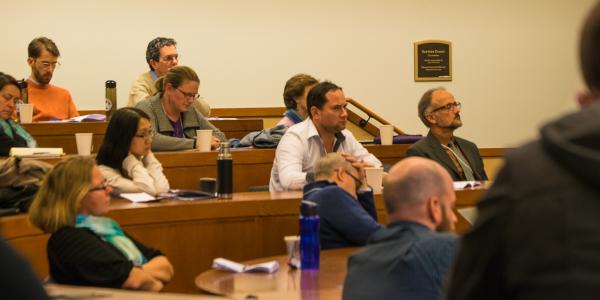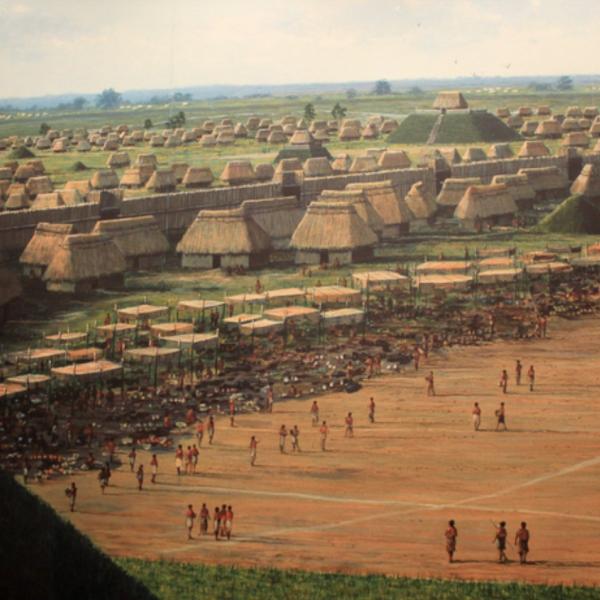Erin McGlothlin, associate professor of German, and Anika Walke, assistant professor of history, co-hosted a prominent Holocaust studies conference at WashU last weekend. Held biennially since 1989, Lessons and Legacies is one of the most significant events in the field of Holocaust Studies. The conference has a storied history of innovation and rigor. As McGlothlin notes, “some of the most innovative and impactful research on the Holocaust of the last three decades have first been presented and workshopped at Lessons and Legacies.”
The gathering of over 300 scholars from across the world comes to WashU at a time when the field of Holocaust Studies is increasing on campus. “There is a growing interest in Holocaust Studies on the part of our undergraduate students and graduate students,” McGlothlin explains, “as evident in the popularity of Holocaust-related courses and the number of graduate students writing dissertations on topics pertaining to the Holocaust. Not only does the conference make more visible the work on the Holocaust being done at WashU, it provided a unique opportunity for members of the campus community to come into contact with prominent Holocaust Studies scholars and to learn about the latest developments in Holocaust research.”

For undergraduate students like Nicci Mowzowski, the conference is a rare opportunity to see the connection between what she is learning in her classes with the field-shaping research of an international community of scholars. Mowzowski was a student in McGlothlin and Walke’s first-year Ampersand program, “The History, Memory, and Representation of the Holocaust.” In that seminar, she took two courses on campus before travelling to Germany, Poland, and Lithuania to visit sites that the class had studied earlier that year.
The conference provided "a unique opportunity for members of the campus community to come into contact with prominent Holocaust Studies scholars and to learn about the latest developments in Holocaust research."
Growing up, Mowszowski has been intimately aware of the Holocaust, which she recalls as “an unchanging, unmoving point in time and space that was the center of my family’s orbit.” When she enrolled in McGlothlin and Walke’s seminar, her understanding began to expand and include the Holocaust as a historical event. “What was once personal,” she recalls “had become global, what was once untouchable had become interactive, and what was once a hesitancy towards questions had become an urge to ask.” Mowzowski reflects that she and her classmates engaged with the sites they visited in Europe “as more than just museums or memorials, but instead as nuanced and changing epitomes of public memory.”

Research in Holocaust Studies is often necessarily interdisciplinary, as is reflected by the range of backgrounds of represented in the conference program. Such methodological flexibility makes for a diverse and rigorous introduction to humanistic research and thinking for first-year students. Walke observes that while studying the Holocaust is not always an uplifting experience for students, it nonetheless provides them with an opportunity to explore interests that will remain relevant long after they leave WashU. “The program broaches fundamental questions of humanistic scholarship,” she explains, such as, “what role does ideology play in how humans make decisions and act? Why does violence against particular groups occur? How do individuals and communities live with the aftermath of systematic violence or other events that disrupt societies and communities? What are the limits to agency and personal responsibility in totalitarian contexts? Exploring these and other questions really goes to the heart of what it means to be a citizen and a human and, as our first two cohorts have proven, is valuable for students with all kinds of academic interests.”
That range of interests and methodologies was on display over the course of the four-day conference. With scholars coming from across Europe, the Middle East, Latin America and the United States and from both universities and public institutions, the conference provided an important intersection point between the Holocaust Studies at WashU and its larger academic community.
To learn more about the papers presented at the conference, visit the conference website.




